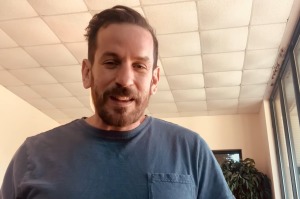Stewardship
The Second of Two, Critical, Biblical Financial Principles
What is a steward?
True stewardship begins when you acknowledge that God is the true owner of everything. Remember what the Psalmist says... “The earth is the LORD’s, and everything in it, the world, and all who live in it...” (Psalms 24:1). The entire world is His by right of creation. He is the owner. According to the Bible, you own absolutely nothing. The sum of your wealth according to God’s definition is simply the sum of all that God has given you to manage (time, talents, abilities, skills, money, resources, etc.).
So what is a steward? A steward is simply a manager of another person’s property.
Examples of stewardship
I’m sure you can think of many examples of “stewardship” in your world today to include bankers, guardians, teachers, parents, etc. The banker is probably the best example. Your bankers don’t own the money they control. They manage it. I know you understand that and, for the most part, they understand that as well.
Stewards, including bankers, have some rights. For example, stewards can and should invest (put to good use) the wealth they manage. Stewards also have the right to keep some of what they manage for their own use.
Stewards, including bankers, also have some restrictions. For example, stewards are accountable to the owner. This means, among other things as well, the owner can take back or take away wealth from the stewards if the stewards do not seek and follow the owners’ directions.
What does Jesus have to say about stewardship?
This is exactly what Jesus Christ teaches you about stewardship in Luke 12:16-20 (please stop here and read it again for yourself). Please notice a couple of important things about this parable. First, God does not condemn the farmer for having wealth, nor does God condemn the wealth itself (the crops). God simply says, “...the ground of a certain rich man produced a good crop.” Notice also that it was the ground that produced the good crop, not the rich man.
And remember, wealth (including money) is not good or bad. Wealth is not moral or immoral. Wealth is not pleasing or displeasing to God. It is your attitude about what you have and how you use what you have that is either pleasing or displeasing to God.
Now check out the attitude of the farmer. What does he say when he sees the great harvest? ”This is whatI’ll do. I will tear down my barns and build bigger ones, and there I will store all my grain and my goods. And I’ll say to myself….” Do you see his error? He didn’t think he was a steward (manager). He thought he was the owner. When that large crop came in he didn’t have a use for it. But, did he ask, “...God, why did You entrust all this to me, what do You want me to do with this great harvest?” No, he considered himself the owner and planned to store it ALL away for his own use. He took the position of owner and was condemned by God.
This parable has great application for you today. You are “rich” when you consider your wealth from God’s perspective. You have “good crops” come in (education, jobs, family, time, etc.). But I wonder, if you were to stand accountable before God today, for the quality of your stewardship, would you fare any better than this farmer? Do you treat God as the owner and ask how to use all that He gives you to manage? Or do you try to act the part of the owner and plan to hide it away in your “barns.” True, you probably don’t have a barn. But you do have checking accounts, savings accounts, homes, cars, clothing, etc. If you choose to be a steward, God blesses. If you choose to try out the position of owner, God condemns.
What is evidence of good stewardship today?
How can you know if you are on the right track before you stand accountable on “that day”? You are moving in the right direction if you
• Understand “wealth” from God’s perspective,
• Acknowledge His authority as owner,
• Accept your responsibility as steward, and can
• Claim Proverbs 10:22…do you have “peace” as you manage His wealth. Or, do you have some or all of the “troubles” that go along with ownership?
The secret of stewardship is attitude.
Develop the attitude of a steward, a manager. Leave the ownership where it belongs–with God.
________________________________________________
Bob Louder is the Founder and President of Christian Financial Ministries (www.good-steward.org). Bob is also the author of the new best selling book, “Debt Free Living God’s Way,” available only on the Internet (www.debtfreelivinggodsway.org). Since 1987 Bob has helped people in hundreds of churches all across the country and in the European military community learn, understand, apply and pass on “Debt Free Living God’s Way” principles and practical applications. He has represented some of the top Christian financial authors and ministries to include Larry Burkett, Dave Ramsey, Christian Financial Concepts, and Crown Ministries.
Copyright 2006 Christian Financial Ministries, Inc., All Rights Reserved. You may reprint this “Special Report” in whole or in part without permission from Christian Financial Ministries, Inc. Please credit material used to Christian Financial Ministries, Inc.





























